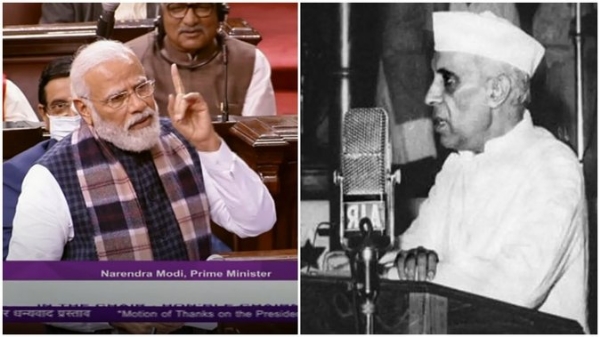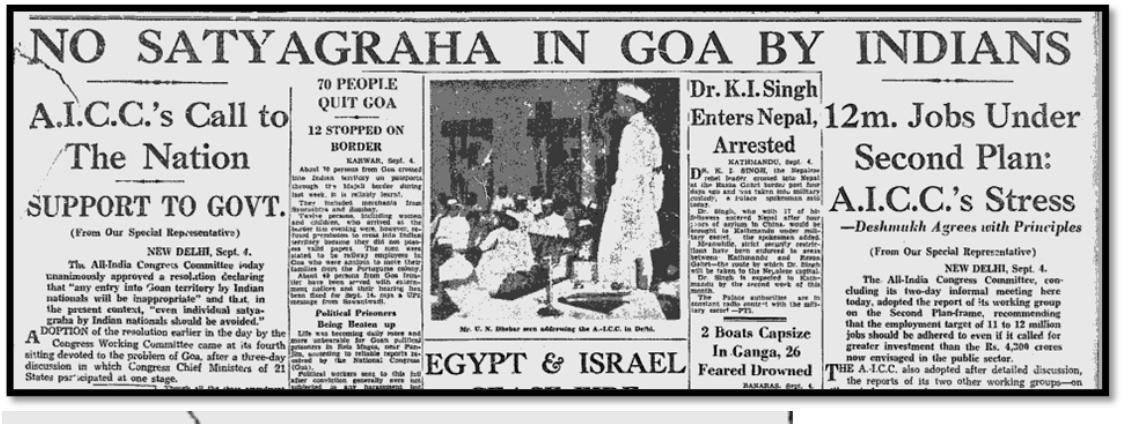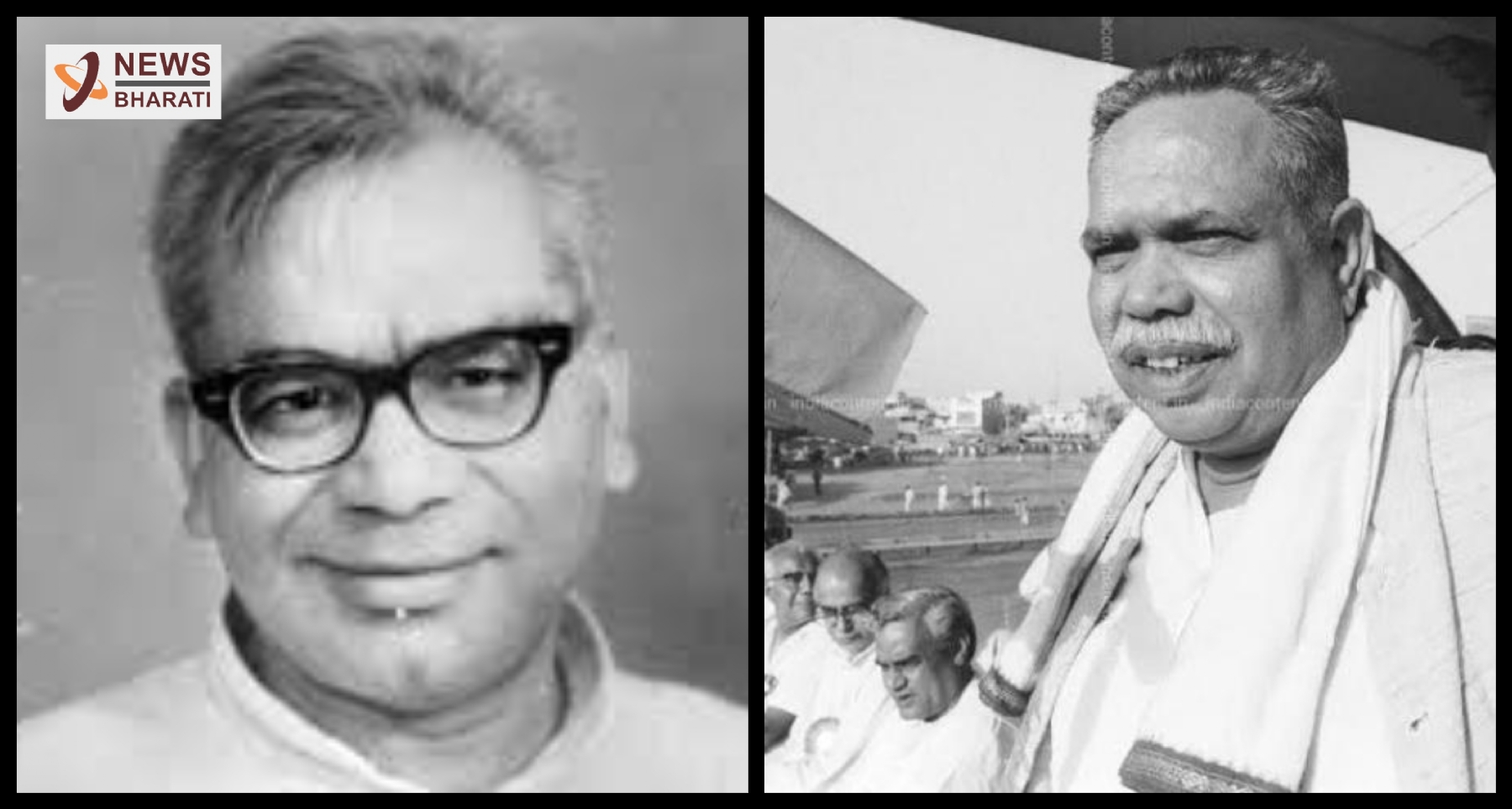Nehru ditched the people of Goa to save his global image: PM Modi
Nehru flatly refused to send the armed forces and insisted that he would try to solve the issue amicably and peacefully. He left the satyagrahis and the citizens of Goa to fend for themselves.
Total Views |
Speaking on the motion of thanks in the Rajya Sabha on Tuesday Prime Minister Narendra Modi castigated his predecessor and the first Prime Minister of India Pt. Jawahar Lal Nehru for ditching the people of Goa to save his global image of a “peace-loving leader”.
This accusation against Nehru would not have come at the most opportune time of the 60th anniversary of Goa Liberation and more so when the state is going to the polls. When the satyagrahis were facing bullets and other hardships of Portuguese rule, Nehru refused to send the Army for their rescue.

In his address from the Red Fort on 15th August, Nehru flatly refused to send the armed forces and insisted that he would try to solve the issue amicably and peacefully. He left the satyagrahis and the citizens of Goa to fend for themselves. People of Goa will never forget this. This criticism was certainly hard for the Congressmen to digest, so they staged a walkout. But that did not erase the criminal neglect caused by the Congress leader to the people of Goa.
Goa is going to elect a new Vidhan Sabha soon. The atmosphere in the state is already surcharged with electoral fever. At such a crucial moment this accusation against the first Prime Minister Jawahar Lal Nehru may tilt the electoral balance to the disadvantage of the Congress party.

The liberation of Goa is a subject that seldom finds a place in public discussion and debate. Maybe because of its small geographical size, the glorious chapter of Goa’s liberation is relegated to the backstage of national history. Prime Minister Modi deserves congratulations for bringing this neglected issue to the forefront of national debate today.
PM Modi blamed Pt Nehru for not sending the armed forces to liberate Goa from the Portuguese rule for 15 years after India became independent in 1947. And this he did to protect his “peace-loving global image”, as Modi said. He compared Nehru’s inaction with the prompt response of the then Home Minister Sardar Patel in liberating Hyderabad from the rule of Nizam. Unlike Nehru, Patel did not care for his image. On the other hand, such hard decisions earned him the epithet of “Sardar” and “Iron Man of India”.
“It has been 60 years of Goa liberation. People of Goa must be listening to me today. The way Sardar Patel made a strategy for Hyderabad and Junagadh, if the same spirit was followed for Goa as well, then it would not have stayed under the foreign rule for 15 years after India got independence”, PM Modi said.

But Nehru was more concerned about his image and any strong action against the Portuguese would have tarnished his image of a global peace leader “Shantidoot”. “It was Pt. Nehru’s biggest fear. He thought that invading the foreign government would lead to the destruction of his peace-loving global image. Let Goa suffer but my image should not get dented”, was the approach of Pt. Nehru.
PM Modi also cited an example of Pt. Hridaynath Mangeshkar, brother of late Lata Mangeshkar, was sacked from the All India Radio services for playing and presenting a song composed by Veer Sawarkar. This was the definition of freedom of expression the Congress believes in, Modi said taking a dig at the Congress party. Even noted lyrist Majrooh Sultanpuri was also jailed for criticizing Jawahar Lal Nehru.
But Goa is not the only example. When the Chinese forces were advancing towards Bomdi-La and further to Tezpur there was all-around panic and an atmosphere of fear. At that crucial moment, when the people of Assam were in need of moral support, Pt. Nehru said in his speech from All India Radio, “My heart goes with people of Assam”. The average Assamese has not forgotten these words and harbors the feeling that the Nehru Government had forsaken his state and its citizens.
Congress indeed is making itself irrelevant and this is reflected in its policies and electoral performance in recent times. Many states have rejected the party and refused to give it the next opportunity. It appears that Congress is working hard to ensure that it would not return to power for a hundred years hence.



